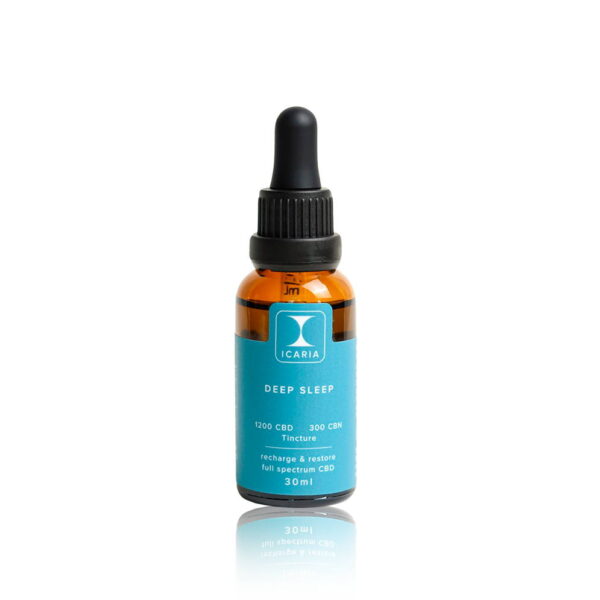What are the Pros and Cons of CBD Oil for Pain?
According to the October 2020 Canadian Pain Task Force Report, chronic pain affects about 7.63 million Canadians aged 15 or older. This translates to about 1 in 4 people dealing with chronic pain.
Chronic pain (and even simple pain, for that matter) can already affect our day-to-day lives. It can prevent us from doing our daily tasks properly. It can even affect our mood and sleep. Pain can even negatively impact our physical and mental health.
Pain medications (either over-the-counter or prescription pain drugs) do help alleviate pain. However, they also have negative side effects. These include but are not limited to:
- Sedation
- Nausea and vomiting
- Constipation
- Gi bleeding
- Slowed breathing and heart rate
Depending on the type, pain medications can even cause addiction problems, overdose, and overdose death.
Today, 16.2% of Canadians are using CBD products. Of this percentage:
- 46.9% use it for muscle pain, joint pains like arthritis, nerve pain or neuropathy, or menstrual pain or PMS)
- 29.9% use it for headaches and migraine problems
- 10.9% use CBD for muscle spasms
- 5.1% use it for fibromyalgia
Most (47.3%) of CBD users take CBD oil, and more than half of them (55.9%) say CBD is either good or very good for their health.
CBD is, indeed, a popular alternative treatment for pain. But how well do you know CBD oil for pain? Do you know the pros and cons of CBD oil for pain?
In this article, we’ll explore the advantages and disadvantages of using CBD oil for pain.
Pros of CBD Oil for Pain
CBD oil for pain offers a lot of benefits. These include benefits like:
- Reduce pain, including chronic, and intractable pain
- Reduce inflammation
- Improve sleep
- Improve mood
- Fewer side effects, non-addictive, non-psychoactive, and non-toxic
Reduce Pain
CBD has potent analgesic effects. It can help reduce not just simple and acute pain but also chronic, intractable pain.
CBD stimulates the cannabinoid receptor type 1 in our cells. This receptor plays an important role in pain control by modulating the way we perceive a painful stimulus. CBD “prompts” the cells to stop releasing more pain chemicals. CBD also “tells” the cells to absorb more pain chemicals in the system.
Additionally, CBD also activates other non-cannabinoid receptors responsible for regulating our pain response. They include the vanilloid and serotonin receptors. Their activation results in reduced pain.
Reduce Inflammation
Inflammation is triggered when the cells and tissues get injured or damaged. The process facilitates healing, and it also gets rid of the debris and irritants caused by the injury. However, the process also triggers the release of more pain chemicals, resulting in increased pain.
Now, CBD reduces the immune system’s overactive response when it activates the cannabinoid receptor type 2, the function of which is to modulate inflammation.
In a way, it tells the immune cells to stop or slow down their release of pro-inflammatory chemicals. These chemicals signal other immune cells to flock to the site of the injury. CBD also triggers the death or apoptosis of these immune cells.
Through these effects, inflammation is controlled and the tissues can start healing again. It also stops the immune cells from releasing more pain chemicals.
Improve Sleep
Pain, as mentioned earlier, affects sleep. It can keep us tossing and turning through the night, preventing us from getting a good night’s sleep.
With CBD reducing pain and inflammation, we can start enjoying better sleep again. Good sleep helps promote faster healing of injuries. It gives our body more time to rest and heal, which usually takes place during deep sleep.
CBD also has an effect on sleep itself. According to Forbes Health, CBD has the ability to not only improve the quantity of our sleep but its quality as well.
Improve Mood
Pain also affects our mood. We become more anxious and irritated when we’re in a state of constant pain.
People with chronic pain are also more vulnerable to anxiety and depressive disorders. One study shows 85% of people with chronic pain also suffer from severe depression. 50% also have anxiety symptoms.
Again, the effects of CBD on pain, inflammation, and sleep can greatly impact our mood. CBD can not only stabilize our mood but also makes us feel calmer, relaxed, and less stressed out. Studies also show that CBD has a direct effect on anxiety and depression when it stimulates the endocannabinoid system and other non-cannabinoid receptors like the serotonin, adenosine, vanilloid, and PPAR receptors.
Fewer Side Effects, Non-Addictive, Non-Psychoactive, Non-Toxic
CBD produces fewer adverse side effects than pain medications. It’s also non-addictive and non-psychoactive.
CBD also has a good safety profile. You don’t have to worry about getting high or addicted when using CBD.
Cons of CBD Oil for Pain
CBD oil for pain also has some disadvantages. The two most common disadvantages associated with CBD use include:
- No recommended daily intake
- Interacts with other drugs
No Recommended Daily Intake or RDI
Because CBD has no RDI, it’s going to be a bit of a trial and error to find the dosage that works best for your pain.
To do this, you can always start with a very low dose. If your pain level didn’t improve, then gradually increase the dose until you find your sweet spot. If you experienced some side effects, then cut back on the dose.
To get a good starting dose, you may use our CBD chart:
- Mild pain symptoms: 5 to 10 drops or 6.25 mg to 12.5 mg of CBD
- Moderate pain symptoms: 5 o 20 drops or 18.75 mg to 25 mg of CBD
- Severe pain symptoms: 20 to 40 drops or 25 mg to 50 mg of CBD
- Extra-strength CBD oil for intractable pain: 80 drops or about 100 mg of CBD
Interacts with Other Drugs
CBD is known to interact with common medications. One such drug is warfarin wherein CBD boosts its blood-thinning effect.
To be safe, always consult your doctor first before starting CBD. This is especially important if you have a chronic health problem and are taking some maintenance medications for it.
Conclusion
CBD oil for pain offers both advantages and disadvantages. However, the pros of using CBD oil for pain far outweigh the cons.
As a consumer, be sure to choose CBD oil properly by reading reviews and knowing more about the product and its producer. Speak with your doctor about CBD use as well, especially if you take medications.







